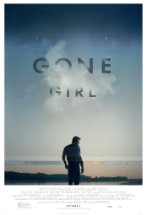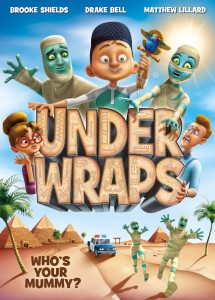
Amy (Rosamund Pike) is watching television, vitally, even viscerally enthralled by what is happening on screen. The look on her face, mingled fascination and calculation, a hint of tooth and claw under her placid, golden girl beauty, is one of the most mesmerizing sights on screen this year.
Pike gives an extraordinary performance in the title role of David Fincher’s film based on the sensationally popular thriller by Gillian Flynn that was carried by just about everyone riding public transportation last year, many of whom became so engrossed that they missed their stops.
that was carried by just about everyone riding public transportation last year, many of whom became so engrossed that they missed their stops.
Ben Affleck is perfectly cast as the once-glamorous and smooth, now just slightly seedy Nick Dunne. His face is still handsome but his jawline is softening, his eyes are beginning to get puffy, and his smile, still calibrated for a face a little bit handsomer than the one he has not quite adjusted to seeing in the mirror.
On their fifth anniversary, Nick’s wife Amy (Pike) disappears, leaving behind some disturbing signs of a struggle and the front door open. Nick calls the police and spends the night with his twin sister, closest confidant, and business partner, Go (Carrie Coon). He sleeps in his clothes and does not clean up the next morning. He knows he will be a more compelling vision of a devastated husband if he looks like a mess.
That is the first indication of one of the story’s key themes: the gulf between the way we present ourselves and the way we are. We learn through flashbacks and Amy’s diary about how they met and fell in love, or a reasonable facsimile. They were buoyed by ease and that made marriage feel easy, too. They had glamorous writing jobs in those last few moments before print publishing collapsed. They had a charming brownstone, bought with Amy’s money, or, rather, the money her parents earned by publishing a successful series of children’s books inspired by their daughter, the Amazing Amy stories. Her parents set aside the profits for the daughter who inspired them. But then there was the recession. Jobs, gone. Money, gone. The economic downturn eroded the golden couple’s notion of each other, of themselves, of success. It is so easy to be in love when you don’t have to blame each other for everything turning out so badly.
When Nick’s mother became ill, they moved back to the small town in Missouri where he and Go grew up, to help take care of her. With the last of their money, they bought a house and a bar for Nick to run with Go. Amy stayed home and wrote in her diary. And now she’s gone.
If there’s one thing television news loves to cover, it’s a missing blonde woman. The Nancy Grace-ish Ellen Abbott (a dead-on Missi Pyle) is all over the story. Is Nick the tragic young husband, longing for his wife to return? Or, as we have seen too often in this high-profile cases, is he a murderer so heartless that he staged the whole thing? One detective (“Almost Famous'” Patrick Fugit) thinks the simple answer is usually the right one. His partner (Kim Dickens, nicely wry) believes in complications. This case has plenty.
No spoilers here. Either you’ve read the book and already know or you haven’t and deserve to be surprised. I’ll just say there are superb performances by everyone, including Tyler Perry as a celebrity criminal defense lawyer and Neil Patrick Harris and Scoot McNairy as Amy’s former boyfriends. And Fincher keeps the energy taut and the tone deliciously nasty.
Parents should know that this is a crime story with some bloody violence, as well as sexual references and situations, nudity, strong language, and drinking.
Family discussion: What would have happened if Nick and Amy had kept their jobs and money and stayed in New York? What will happen after the ending of the movie?
If you like this, try: “To Die For” and the novels by Gillian Flynn, including Dark Places , soon to be a movie starring Charlize Theron.
, soon to be a movie starring Charlize Theron.



